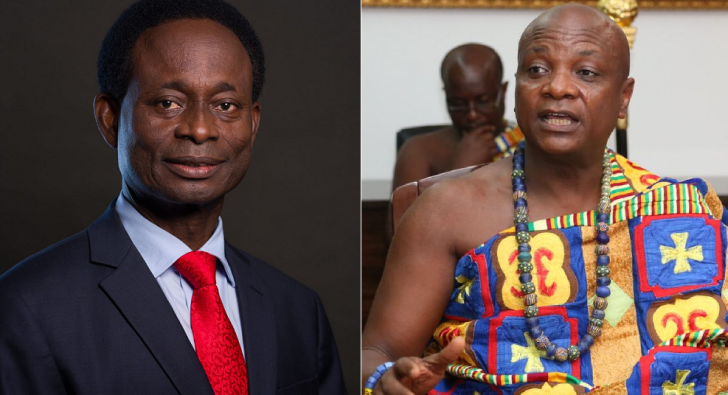
Running for vice presidency: What’s at stake
Things are heating up in the vice-presidency race. The current Vice President (VP), Dr Mahamudu Bawumia, is aiming to be president on the ticket of the New Patriotic Party (NPP). John Mahama is the National Democratic Congress (NDC’s) presidential candidate. Both need to choose running mates soon, as the election date is now fewer than 300 days away.
Advertisement
What should be the criteria for the selection of VP candidates for both men? Issues such as competence, integrity and electoral appeal are vital.
But what about the professional background of the potential VPs? Both parties appear to be mulling over what seems to some as unconventional choices: immediate past Chairman of the Church of Pentecost, Professor Opoku Onyinah, for the NPP and Agbogbomefia of the Asogli State, Togbe Afede XIV for the NDC. Both names are speculative, and other names are in the frame.
Is it appropriate for a traditional chief or the former head of Ghana’s largest church, the Church of Pentecost, to take such an active role in politics as running for the VP position in Ghana’s largest political parties? One or the other party is virtually certain to win either the presidency or a majority of seats in Parliament; perhaps both.
Ghana’s 1992 Constitution does not allow for traditional chiefs or clerics to be elected political figures; neither does it explicitly deny the chance of such people being elected to positions of great political prominence. Why then is the issue causing so much controversy?
The fear expressed in both the traditional and social media, is that neither chiefs nor clerics should engage in the bread-and-butter issues of politics. This is not because they are not suitable; it is because critics and supporters alike fear they would be dragged into the murky world of politics, with corruption and instrumentalism favouring some over others being key issues.
Potential candidates
What’s at stake for the potential candidates, chief and cleric? One outcome might be that they take up positions of great political power and as a result, their reputations would be tarnished by their closeness to the murky world of politics with its infighting, corruption and moral and ethical dilemmas.
Both men have expressed their position about becoming VP: they believe that they have a lot to offer Ghana and if they become the VP, then they have the chance to change things for the better and deal with some of the country’s pressing issues, which as outsiders looking into the political world at present, they are unable to do.
But is this just a matter of ego and self-belief in the inherent appropriateness of each man to make a positive difference in ways that both clearly would hope to do if they were to become VP? It is clear that after more than three decades of democracy, Ghana stands at a crossroads. Most Ghanaians believe that democracy is the best – or maybe the least bad – option available to them. Very few, it appears, would opt for non-democratic alternatives.
What then is to be done to improve politics and most importantly, the popular perception of Ghana’s politics so that Ghanaians would actively want to be a part of a political system which they believe can improve the quality of their lives in various ways. That, after all, is the point of all governments: to make life better for all.
Zambia’s President, Frederick Chiluba, announced that the country was a Christian nation over 30 years ago. Christians became actively involved in politics at all levels.
Zambians were however disappointed with the country’s political trajectory and today, many are sceptical that Zambia is a country identifiable by a benign Christianisation of politics.
In sub-Saharan Africa generally, and Ghana not an exception, chieftaincy is an indigenous institution which commands widespread respect. It remains salient in several African countries, including South Africa. It is included in formal governance structures and systems. Many believe that chieftaincy in Africa is undergoing a revival in the context of a wider return to tradition. This may reflect widespread misgivings about poor governance – sometimes linked to local or regional conflicts – or upheavals linked to political transition. Merely to state this, however, is to miss the point: traditional leaders have long been an important factor in the context of diverse institutions and political logic in many African countries.
Advice
Both chiefs and clerics are powerful fixtures in Ghana’s social and political environment. Neither needs to make the jump into active politics to do good and aid the nation’s development. Churches, including the Church of Pentecost, contribute a lot to Ghana’s social and societal development while chiefs remain the bedrock of society in many parts of Ghana. To jump into the active world of politics in an election year is a gamble; both Prof. Opoku Onyinah and Togbe Afede XIV should think long and hard before making such a choice.
The writer is an Emeritus Professor of Politics, at London Metropolitan University, United Kingdom




